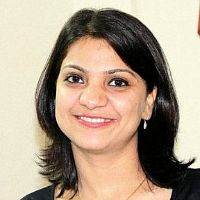Explore how society uses and interacts with data to understand and navigate the world.
Humans have always used data to help them understand and navigate the world. In recent years, advances in technology, computing power and internet accessibility have rapidly increased the importance of data on a societal level. Today, data can be gathered and applied to address almost anything, from science to politics and sports to literature.
In this Pathway, students will develop data literacy and learn to interpret and analyze data themselves. They will acquire the skills to use data to draw inferences, make informed judgements and decisions, and clearly communicate. They will explore the ways society uses and interacts with data to form evidence-based arguments; the relationship between data, privacy and morality; the role of data in social justice; the rapidly expanding role of big data in both the public and private sectors; and how data analysis, like any tool, can be used in unethical ways that may ultimately undermine knowledge.
While students construct their own animating questions, some recent examples include:
- What role does big data play in the ethical decisions made in the medical industry?
- How can we develop unbiased and non-discriminatory machine learning algorithms?
- How has the psychology of economic decision-making been influenced through big data?
- How can data analysis inform healthier positive marketing strategies for consumer products within marginalized communities?
- How has our society created a world in which women earn significantly less than men?
- How much information can be found about people for free using the internet?
Thematic Inquiry
This course introduces the use of data as means to create information and knowledge in a variety of contexts. Students will learn about data analysis, the responsible use of data, data collection in their own lives, and how to communicate results and findings. As part of the course, students will identify an animating question or research theme to focus their future studies, global/local engagement and study away. Students will also complete a course that focuses on data analysis and interpretation of data, ideally prior to completing the Thematic Inquiry seminar.













